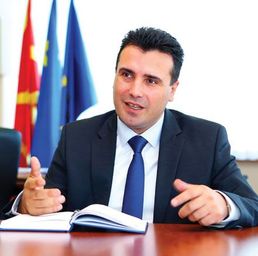 Photo credit: Public Domain
Photo credit: Public Domain
His response was "we are a brotherly people, we are the same people and I am very glad that all political parties from Bulgaria sent friendly messages."
Unlike his predecessor Nikola Gruevski, the politics of 'open doors' towards Bulgaria seem to be a part of Zaev's worldview.
In Bulgaria, Zoran Zaev's statement was seen as a positive gesture after decades of anti-Bulgarian sentiments in the FYROM. Prof. Bozhidar Dimitrov, the Director of the National History Museum in Sofia stated on Focus News Agency:
“I expected that this would happen sooner or later. Zaev is a functioning Macedonian [sic] politician, who is saying that there is no difference between Bulgarians and Macedonians [sic]. I hope this is a sign that Macedonian [sic] politicians are finding the courage to admit this; they have done so in private conversations with me but not publicly,” Prof. Dimitrov explained.
“Unfortunately, these confessions happen at a time of accelerated albanisation of Macedonia [sic] with larger territories getting settled by the growing Albanian population and political parties putting high demands on their potential Macedonian [sic] partners. The statement is accurate and historically true,” he added.
Sources: Macedonia Forever Greek, Focus News Agency




 RSS Feed
RSS Feed